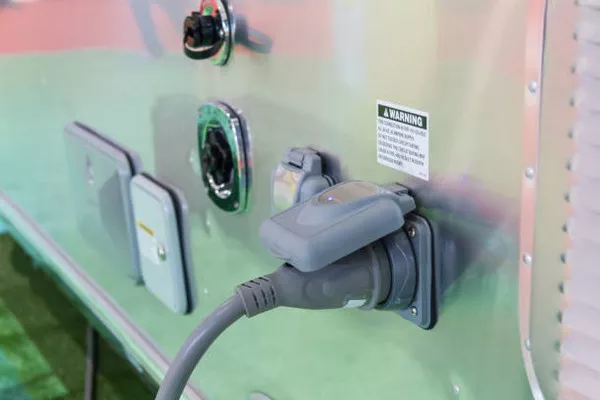In an era where electricity is the lifeblood of modern society, the significance of reliable and efficient power sources cannot be overstated. Gas-powered generators play a crucial role in providing backup power during outages, supplying electricity in remote areas, and supporting various industrial applications. This article delves into the mechanics, advantages, challenges, and future prospects of gas-powered generators, offering a detailed understanding of their operation and relevance.
Understanding Gas-Powered Generators
A gas-powered generator operates by converting the chemical energy of gas (natural gas, propane, or gasoline) into electrical energy. This process involves an internal combustion engine (ICE) that ignites the gas to create mechanical energy, which is then converted to electrical energy through an alternator. The primary components of a gas-powered generator include the fuel system, engine, alternator, voltage regulator, cooling and exhaust systems, lubrication system, battery charger, control panel, and main assembly/frame.
Fuel System: Ensures a steady supply of gas to the engine.
Engine: Burns the gas to produce mechanical energy.
Alternator: Converts mechanical energy into electrical energy.
Voltage Regulator: Maintains a consistent output voltage.
Cooling and Exhaust Systems: Manage the engine’s temperature and expel exhaust gases.
Lubrication System: Reduces friction between engine parts.
Battery Charger: Keeps the starter battery charged.
Control Panel: Allows user interaction and monitoring.
Main Assembly/Frame: Houses and supports the generator components.
Types of Gas Used in Generators
Natural Gas: Abundant and cleaner-burning compared to other fossil fuels. It is often used for stationary generators due to its cost-effectiveness and availability.
Propane: Also known as liquefied petroleum gas (LPG), propane is a clean-burning fuel with a longer shelf life than gasoline. It’s commonly used in both portable and stationary generators.
Gasoline: Easily available and highly portable, making it ideal for small, portable generators. However, it has a shorter shelf life and is less efficient than natural gas or propane.
Advantages of Gas-Powered Generators
Reliability: Gas-powered generators are known for their ability to provide consistent power supply, especially during emergencies or in off-grid locations.
Fuel Efficiency: Natural gas and propane generators typically offer better fuel efficiency compared to diesel or gasoline generators.
Environmental Impact: Natural gas and propane produce fewer emissions compared to diesel and gasoline, making them environmentally friendlier options.
Ease of Access: Natural gas is often delivered directly through pipelines, eliminating the need for fuel storage and reducing refueling frequency.
Versatility: Gas-powered generators are available in various sizes and capacities, suitable for residential, commercial, and industrial applications.
Applications of Gas-Powered Generators
Residential Use: Backup power during outages, ensuring the continuous operation of essential appliances and home security systems.
Commercial Use: Maintaining business continuity during power outages, critical for sectors like healthcare, finance, and retail.
Industrial Use: Powering construction sites, mining operations, and other industrial activities in remote or temporary locations.
Recreational Use: Providing electricity for outdoor events, camping, and recreational vehicles (RVs).
Challenges of Gas-Powered Generators
Initial Cost: Gas-powered generators, especially those that use natural gas, can be more expensive to purchase and install compared to diesel or gasoline generators.
Infrastructure Requirements: Natural gas generators require a connection to a gas pipeline, which may not be feasible in all locations.
Maintenance Needs: Regular maintenance is necessary to ensure the reliability and longevity of the generator.
Fuel Supply Stability: Natural gas supply can be affected by pipeline issues, while propane and gasoline supplies are subject to market fluctuations.
Future Prospects and Innovations
The future of gas-powered generators is closely tied to advancements in technology and evolving energy policies. Key trends and innovations include:
Hybrid Generators: Combining gas engines with renewable energy sources like solar or wind to enhance efficiency and reduce environmental impact.
Smart Generators: Integration with smart grids and IoT (Internet of Things) devices for real-time monitoring, predictive maintenance, and optimized fuel consumption.
Improved Emission Controls: Development of advanced catalytic converters and other technologies to further reduce emissions and meet stringent environmental regulations.
Enhanced Fuel Efficiency: Research and development focused on improving the thermal efficiency of internal combustion engines.
See Also THE EFFICIENCY OF DIESEL GENERATORS
Conclusion
Gas-powered generators remain a vital component of the global energy landscape, providing reliable and efficient power across various sectors. Despite challenges such as initial costs and maintenance requirements, their advantages in terms of reliability, fuel efficiency, and environmental impact make them a preferred choice for many applications. As technological advancements continue to emerge, the role of gas-powered generators is expected to evolve, further cementing their importance in ensuring uninterrupted power supply in an increasingly electrified world.
Understanding the intricacies of gas-powered generators, from their operation to their diverse applications, highlights their indispensable role in modern society. As we look towards a future driven by innovation and sustainability, gas-powered generators will undoubtedly continue to play a crucial role in bridging the gap between energy demand and supply, ensuring that the world remains connected, productive, and resilient.

